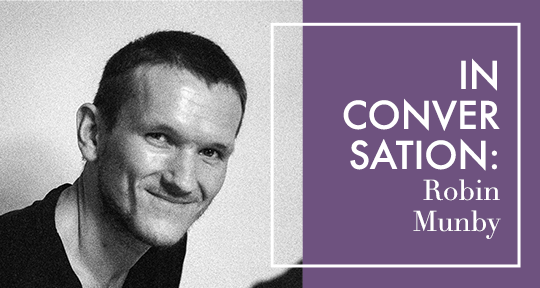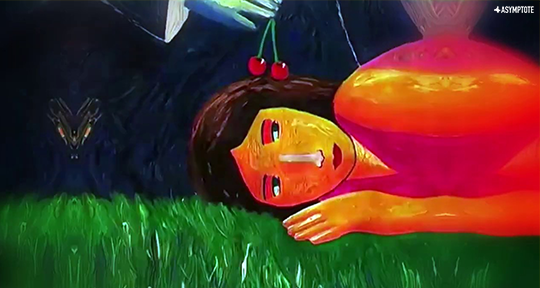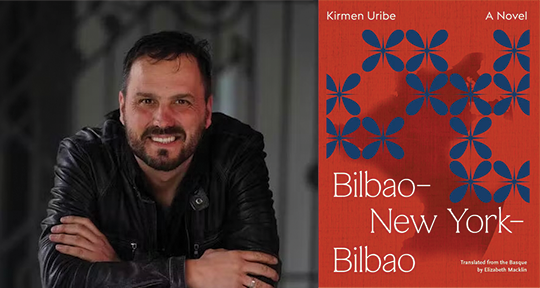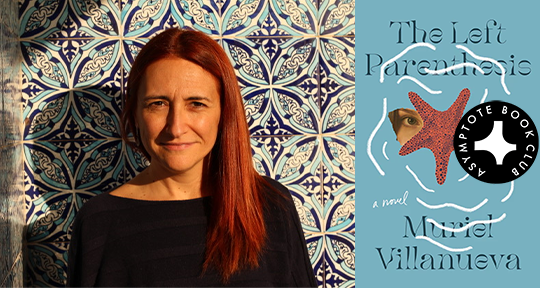As Charlie Ng writes in her essay, ‘Translating Whale-Song into Human Speech’, the poetic ‘Song of the Whale-road’ embodies the “primordial unity” of humans and nature in the timeless, ahistorical figure of the whale. Published in Asymptote‘s Spring 2023 issue, ‘Song of the Whale-road’ is a series of experimental excerpts from the novel Oceánica by Yolanda González, arranged and translated by Robin Munby. It navigates the ocean not only as a landscape but as a powerful “symbol of the collective unconscious”, juxtaposing the false narrative of human godhood we tell ourselves against the whales’ magnitude in our shared planetary experience of nature and time. In this interview, I spoke with Robin Munby about his role in shaping the gravity and pull of this text, as well as about his piece ‘A New Vocabulary of Translation’, also published in Asymptote‘s latest issue, in which a serpentine glossary helps guide a critic’s review of translations.
Michelle Chan Schmidt (MCS): Robin, you almost seem to have gone beyond the remit of a translator with ‘Song of a Whale-road’. Building on González’s approach to Oceánica, you’ve brought ‘Song of a Whale-road’ into your own experimental realm of language, structure and presentation by compiling the text yourself. What was the creative process behind the piece’s cohesive form?
Robin Munby (RM): The way the piece came about is quite straightforward. I’d read and enjoyed Oceánica and planned to do something with it down the line, but it was the call for the Asymptote animal-themed special feature that gave me the prod I needed. Because I was translating the piece with that goal in mind, it made sense to focus on the intercalated sections running through the novel told from the perspective of a pod of whales, as opposed to working on sections from the novel’s various other strands.
In the context of the novel, the sections which became ‘Song of the Whale-road’ function a little like the Greek chorus. For that reason, I wasn’t sure until I’d compiled them and really until after I’d had a go at translating them, whether they would work as a standalone piece; there’s something a little absurd about presenting the chorus without the play. But I felt there was an internal logic to them and a music that would hopefully come through even outside of their original context. Though translation always involves re-forming and re-contextualizing to varying extents, I’m sure I’d have made different decisions had these pieces been translated alongside the rest of the novel. In particular, the translation of the wider novel would likely have influenced my approach to these sections, and I’d have had to focus slightly less on their internal coherence and more on the points at which they resonate with and speak to the novel’s other strands. I’ll come back with a fuller answer if/when I translate the rest of the novel! READ MORE…











